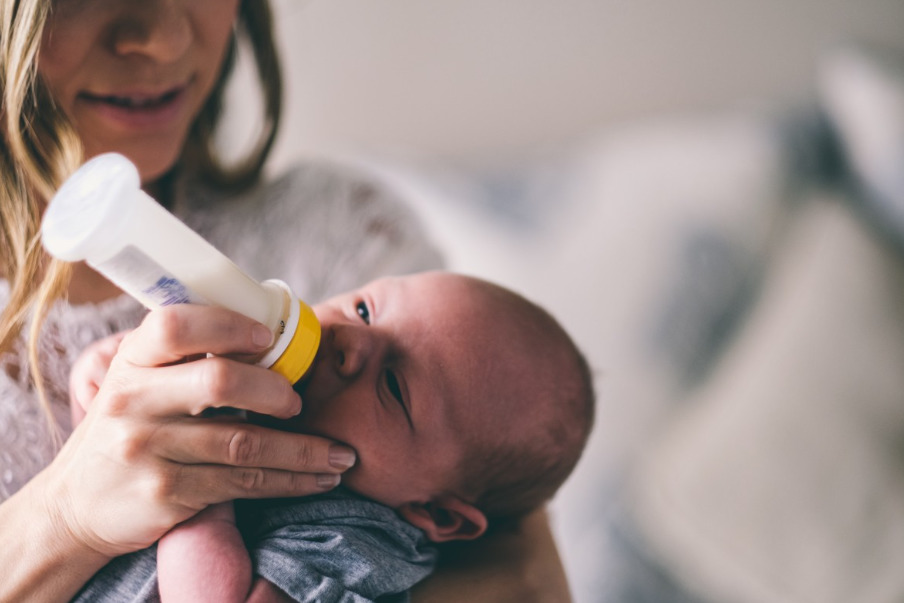
At last, a small bit of potentially good news regarding the ongoing baby formula shortage.
Abbott Nutrition – a formula manufacturer whose productions were halted after a former-employee-turned-whistleblower alerted the U.S. Food and Drug Administration about falsified safety records following a product recall in February – may have reached a rectifying agreement with the government body. If it’s approved, the manufacturing site could reportedly open up within 2 weeks.
But it would still take an additional 6 to 8 weeks for the formula to make its way back onto shelves, officials told CNN. Plus, supply chain issues that have contributed to the ongoing shortage still persist.
In the meantime, parents are struggling to feed their children, as only breastmilk and formula are recommended for children less than 6 months old by the CDC. They are also grappling with product hoarding and price gouging that have compounded the situation. Low-income families and families of color are especially hurt by this, as they search for formula not presently found on store shelves (physical or virtual).
And sure, breastfeeding is an alternative available to some – but not for parents who can’t provide it because they struggle to produce, or have ongoing infections, or are adoptive parents, among myriad other reasons.
The broad lack of access and assistance during this shortage is especially galling in a nation where parents are already woefully unsupported, and where abortion access is under critical threat. But even if that weren’t the case, formula is still a basic necessity.
In recent weeks, some women have taken up the charge of trying to help parents find it.
Several “formula influencers” spoke to Buzzfeed News about their efforts to connect followers – over 200,00 between them – to one another, bridging the virtual gap between those who desperately need formula, and those who have some to spare. “Honestly … I couldn’t sleep because I was so worried about the formula shortage,” Austin-based nurse Erin Moore, who recently urged her 42,000 followers to join a formula-finding Facebook group, told the site.
The stories from struggling parents have been heartbreaking, she added. “I’ve had one mother that contacted me and she was on her last can of formula. And they had called every store, every CVS, anywhere that had formula, and they still couldn’t find it. And she has to decide: ‘Do I give my baby a formula that they might not be able to tolerate? Or do I not feed my baby?’”
Summer Merrick in Syracuse, New York is also trying to bridge the gap in formula access, by way of a formula bank she started through her child-focused nonprofit, Help Me Grow Onondaga. She has eight staff members scouring shelves to build a supply for needy families. She opened the bank at the start of pandemic lockdowns in 2020, but says she – unsurprisingly – has seen a dramatic uptick in need over the past few weeks.
“‘I don’t know how I would feed my baby – what would I have done?’” Merrick told Syracuse.com some recipients have said to her.
There’s also alternatives like formula maker startup Bobbie. Its women co-founders, Laura Modi and Sarah Hardy, launched in 2018 due to concerns over the amounts of corn syrup sometimes found in American baby formulas. The company’s current recipe, concocted in compliance with FDA guidelines, emulates European formulas, which contain less sugar.
And it recently received $50 million, which Modi told Fast Company it will use to expand its product line.
In the meantime, experts, organizers and influencers alike caution parents against homemade formula recipes and diluting formulas to extend supply – courses of action that could harm newborns and infants. Instead, these women will continue to connect families in need with whatever supplies might exist, as best they can.
Another Instagram formula influencer, Mallory Whitmore, told Buzzfeed that she’s been “trying to work around the clock” to assist, despite her own children and workload to manage. “We can’t solve this on a macro level, but we can maybe help somebody in the next state over that can’t find what they need.”



